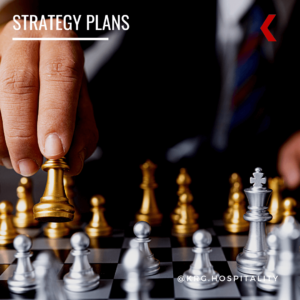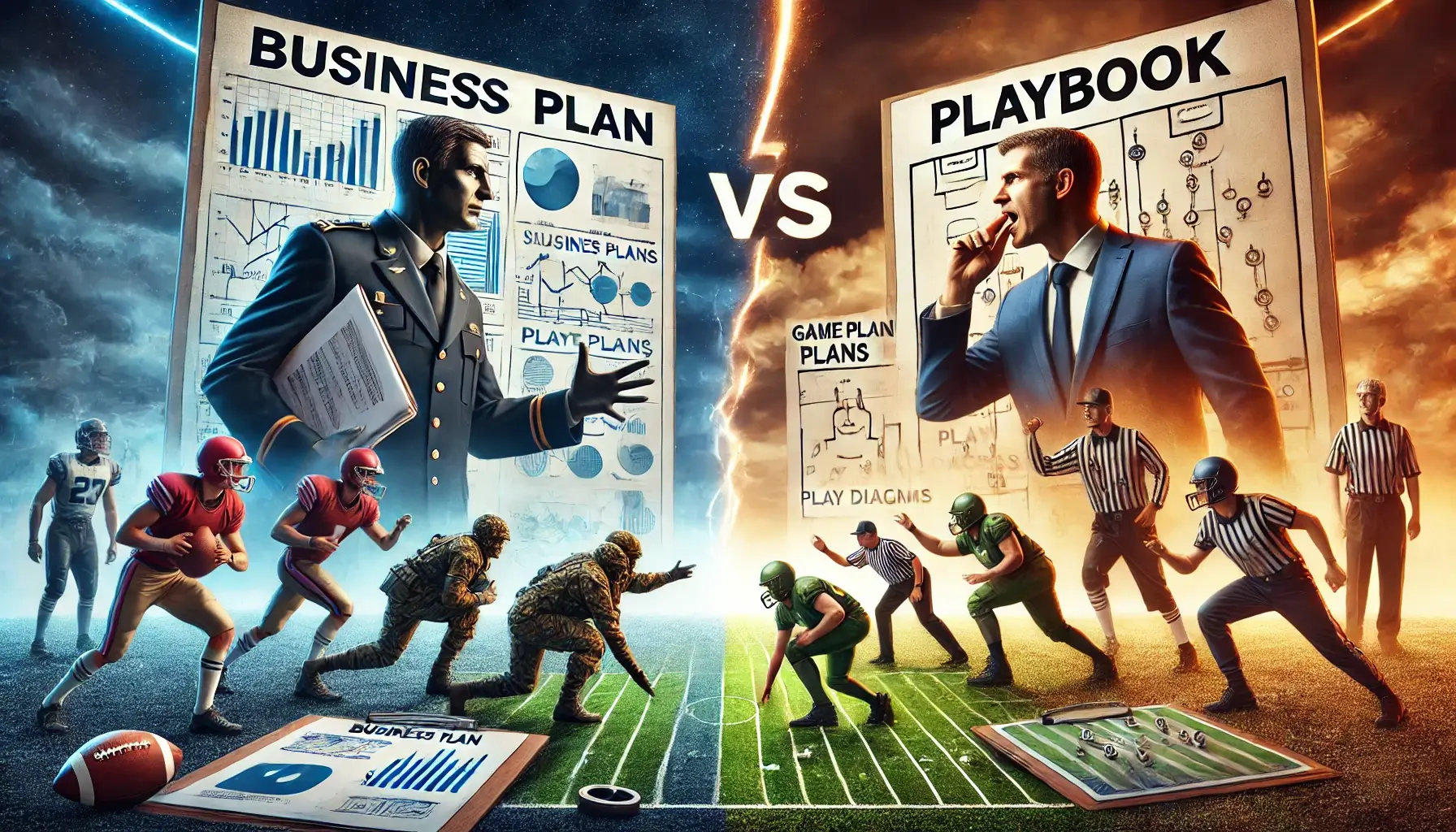Why You Should Invest in Strategy and Foresight
by Doug Radkey

A surprising trend is emerging: Many aspiring entrepreneurs, restaurateurs, hoteliers, and seasoned business owners are hesitant to invest in two key elements.
Those elements? Strategy and foresight.
Despite understanding the importance of strategic direction, they often prioritize more immediate needs such as hiring talent, refining processes, and other operational aspects. However, these efforts, while crucial, can lack cohesion and effectiveness without a well-defined strategy guiding them.
Financing can be tight but that’s not often the issue. I’ve witnessed business owners eagerly spend $25,000 on new tables and chairs—when they weren’t necessary—while hesitating to invest the same amount in strategic planning that could yield a much higher return on investment.
It’s even more surprising to see new entrepreneurs pour over $1 million into launching a new bar or restaurant, only to balk at a $25,000, comprehensive strategy package.
This package, which includes a feasibility study, concept development playbook, brand strategy, marketing playbook, tech-stack playbook, financial playbook, and business strategy playbook, is often dismissed as “not in the budget.”
Yet, this investment in strategy is crucial for setting a strong foundation, and ensuring both short-term and long-term success. It’s like navigating without a map, or building a house without a blueprint; there may be some progress, but without a clear vision and destination, there’s a much greater risk of veering off course.
In terms of restaurants, bars, or hotels, a lack of strategy and foresight leads an owner to crumble their business to the ground.
This article explores the reasons why investing in strategy and foresight is not just a wise choice but an essential one for ensuring success and stability in an increasingly unpredictable industry.
What are Strategy and Foresight?
To overcome the laundry list of potential obstacles in this industry, you must prioritize strategic thinking, invest in the necessary resources and expertise, and cultivate a culture that values long-term planning.
No matter whether you’re starting, stabilizing, or scaling your brand, you need both strategy and foresight on your side.
Foresight
Foresight is the process of anticipating and envisioning potential future scenarios, trends, and developments. It involves analyzing emerging patterns, uncertainties, and possible disruptions to understand what the future might hold for you and your bar, restaurant, or hotel.
Foresight is not about predicting the future with certainty but about exploring a range of possibilities, and preparing for each of those scenarios.
Key Characteristics:
- Explorative: Foresight explores multiple potential futures rather than focusing on a single expected outcome.
- Long Term: Typically, a focus on the long-term implications of current trends and decisions.
- Proactive: Foresight encourages proactive thinking and planning to anticipate changes, and prepare for various possibilities.
- Qualitative and Quantitative Analysis: A combination of qualitative insights and quantitative data to create comprehensive future scenarios.
Strategy
Strategy, on the other hand, is the formulation and implementation of a plan to achieve specific goals and objectives. It involves making deliberate choices and decisions to allocate resources, navigate challenges, and capitalize on opportunities.
Strategy is focused on setting a clear direction, and determining the actions needed to reach desired outcomes.
Key Characteristics:
- Directive: Strategy provides a clear roadmap and actionable steps to achieve goals.
- Focused on Execution: The practical aspects of how to achieve desired outcomes, including resource allocation, prioritization, and performance measurement.
- Short to Medium-Term: Strategy often addresses short to medium-term objectives, aligning current actions with long-term vision.
- Decision Making: Strategic decisions based on the current understanding of the environment, resources, and capabilities.
Why You Should Integrate Strategy and Foresight
When you combine strategy with foresight you and your business can make more informed decisions. An informed decision is the consideration of both the present context and potential future developments.
Foresight provides valuable insights into emerging trends and uncertainties, helping your brand anticipate challenges and opportunities. This integration ensures that strategic decisions are based on a comprehensive understanding of possible future scenarios. Strategic decision reduce the risk of being caught off guard by unexpected changes.
Integrating foresight into the strategic planning process enhances your businesses adaptability and resilience. Foresight allows you to explore a range of possible futures, and develop contingency plans for different scenarios.
This proactive approach enables you and your team to respond quickly and effectively to changes in the external environment. Whether technological advancements, market shifts, or sociographic adjustments, you’ll be prepared to adapt quickly.
Innovation and Risk Management
Foresight provides a long-term vision, while strategy focuses on short-term actions. By integrating the two, your hospitality business can align its immediate goals and actions with its long-term vision. Doing so ensures consistency and coherence in decision-making, and helps you stay on track toward achieving your long-term objectives. It also helps bridge the gap between future aspirations and current realities, creating a more cohesive and actionable playbook.
When you act with foresight, you encourage the exploration of new ideas and potential innovations by identifying emerging trends and disruptions. Integrating foresight with strategy enables your business to pursue innovative solutions proactively, and capitalize on emerging opportunities. This combination fosters a culture of innovation, and encourages you and your team to think beyond the present, seeking ways to stay ahead of the competition continually.
Foresight helps identify potential risks and uncertainties that may impact your business in the future. Incorporate these insights into the strategic planning process so you can develop strategies for your business that mitigate or manage risks.
A proactive approach to risk management reduces vulnerability, and enhances organizational stability.
Foresight and Strategy Sample for Starting a Hospitality Brand
Strategy
Feasibility Study: Assess market demand, demographics, competition, and potential profitability. This foundational step provides a realistic view of the business opportunity and potential challenges.
Brand and Concept Development: Define the unique selling proposition (USP), story, target market, and brand identity. Develop a detailed playbook outlining the concept, including menu/room design, service style, and intended ambiance.
Site Selection and Design: Choose a location based on the completed feasibility study. Design the space to reflect the brand’s identity and concept with a reputable designer who follows the vision.
Foresight
Market Trends Analysis: Identify emerging food and beverage trends, changes in consumer preferences, and demographic shifts. Use this information to shape the concept and offerings.
Regulatory Landscape: Anticipate potential changes in regulations related to health, safety, and licensing. Prepare to adapt to these changes to ensure compliance and minimize disruptions.
Technological Integration: Explore advancements in restaurant and hotel technology. Plan for their implementation by developing a tech-stack that enhances the guest experience, and operational efficiency.
Foresight and Strategy Sample for Stabilizing a Hospitality Brand
Strategy
Operational Efficiency: Streamline processes, optimize inventory management, and implement cost-control measures. Review financial performance regularly to identify areas for improvement.
Marketing and Branding: Develop a cohesive marketing strategy to build brand awareness and loyalty. Leverage social media, local events, and partnerships to attract and retain guests.
Guest Experience: Standardize service protocols, and enhance staff training. Focus on delivering consistent and high-quality experiences to build a loyal guest base.
Foresight
Scenario Planning: Develop contingency plans for potential disruptions, such as economic downturns, supply chain issues, or changes in consumer behavior. This preparedness helps the business remain resilient in the face of uncertainty.
Competitive Analysis: Monitor competitors’ strategies and market positioning continuously. Adapt and differentiate the brand’s offerings to maintain a competitive edge.
Guest Feedback and Data Analysis: Collect and analyze guest feedback to identify emerging preferences, and areas for improvement. Use this data to refine offerings and enhance guest satisfaction.
Foresight and Strategy Sample for Scaling a Hospitality Brand
Strategy
Expansion Planning: Evaluate potential markets for expansion, considering factors such as demographics, market demand, and competition with a feasibility study. Develop a scalable business model and expansion strategy.
Brand Consistency: Develop and maintain brand standards, and ensure consistency across all locations. Implement standardized operating procedures and quality control measures.
Partnerships and Collaborations: Explore strategic partnerships with suppliers, local businesses and community partners, or other brands to enhance offerings and expand reach.
Foresight
Future Market Opportunities: Identify emerging markets and growth opportunities, such as new geographic regions, niche markets, or evolving guest segments. Plan to enter these markets with tailored offerings.
Innovation and Adaptation: Foster a culture of innovation by encouraging the exploration of new ideas, products, and services. Stay ahead of industry trends and incorporate innovative solutions to differentiate the brand.
Risk Management: Assess potential risks associated with scaling, such as supply chain complexities, cultural differences, or operational challenges. Develop an outlook to mitigate these risks and ensure smooth expansion.
In Summary
The integration of strategy and foresight into your hospitality business is not a luxury but a non-negotiable.
Investing in these areas will provide your business with the tools and insights needed to navigate uncertainties, anticipate market shifts, and make informed decisions that align with your goals. Far from being mere expense lines, strategy and foresight are foundational elements that drive growth, innovation, and resilience.
Prioritize strategic planning and future-oriented thinking so your business can create a cohesive and actionable roadmap that bridges the gap between current realities and future aspirations. This investment enables you to address potential challenges, capitalize on emerging opportunities, and maintain a competitive edge in a proactive manner.
Whether starting a new venture, stabilizing your operations, or scaling your business to new heights, the integration of strategy and foresight empowers you to outperform the competition in this ever-changing environment.
Ultimately, the value of investing in strategy and foresight goes beyond immediate financial returns. This integration cultivates a culture of continuous improvement, adaptability, and forward thinking, ensuring that your business is not only prepared for the future but also positioned to shape it.
As such, you should view these investments not as costs but as crucial assets that contribute to the success and sustainability of your brand.
Image: Canva



